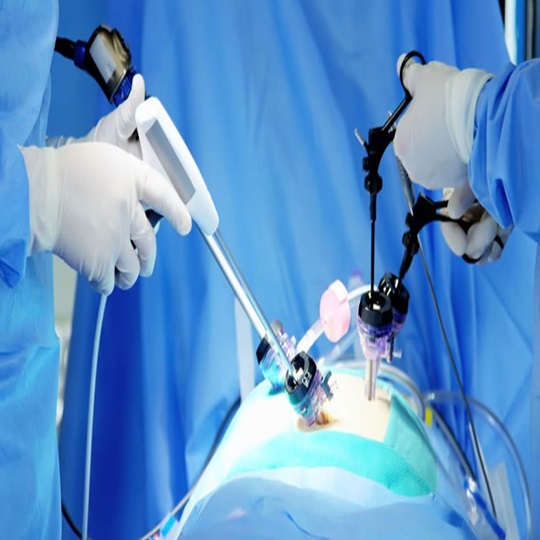Laparoscopic Surgery
Laparoscopic surgery is a minimally invasive surgical method and many surgeries can be performed laparoscopically with much smaller incisions instead of the large incisions in open surgery.
In laparoscopic surgery, the abdomen is first inflated with carbon dioxide gas to allow easy viewing of the abdomen and safe surgery. Laparoscopy can be performed for diagnostic purposes, that is, to look inside the abdomen and make a diagnosis, while at the same time it allows many surgeries such as endometriosis, myoc, ovarian cyst, and uterine surgery, which are performed with large incisions, to be performed with small incisions.
Laparoscopy has a shorter recovery time, causes less pain after surgery, and causes less intra-abdominal adhesion, making it a preferred method today.
Endometriosis, myoma, ovarian cysts, ectopic pregnancy, pelvic abscess, infertility, gynecological cancers, and uterine prolapse can be treated with laparoscopic surgery.
As with any surgery, it is important to stop taking birth control pills and blood thinners such as fish oil before these surgeries and inform your doctor about all medications you are taking.
Laparoscopic surgery is a surgery performed under general anesthesia. Depending on the type of surgery, 3-4 incisions of approximately 1 cm in size will be made in your abdomen. Previous abdominal surgery, being overweight, being very thin, advanced endometriosis, pelvic infection, etc. may increase the risk of complications during surgery. These complications include injuries to the veins, bladder, intestines, uterus and other organs, nerve damage, ileus, adhesions, and intestinal herniation to trocar sites. Although serious complications are rare, you should inform your doctor if you experience severe abdominal pain, prolonged nausea and vomiting, high fever, inflammation or bleeding from the incision sites, or pain during urination or defecation after surgery.
The hospital stay after surgery may vary from a few hours to a few days depending on the type of surgery to be performed. The recovery period after discharge from the hospital may also vary from a few days to a few weeks. During this period, Assoc. It is important for you to use the medications given by Esra ÖZBAŞLI and follow her recommendations for a full recovery.







